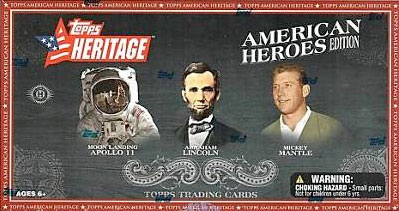A preliminary injunction hearing was held the other day in Los Angeles in Buzz Aldrin’s right of publicity lawsuit against Topps, which makes trading cards. Â He accuses Topps of including his image and likeness on an “American Heroes” trading card and package without his permission, and for its own commercial benefit, in violation of California statutory and common law right of publicity law. Â Topps replies that its use of the image/likeness is protected by the First Amendment. Â The photograph itself, I believe, is in the public domain as a work of the US Government. Â The photograph was taken by Neil Armstrong, who was (I believe) a federal employee at the time, acting in his official role.
Some relevant photographs:




I wish I could answer either the question about rights of publicity on the moon or rights of publicity in a footprint. Sound like great hypos for an exam!
On Sept. 27, 2011, the district court granted the defendant’s special motion to strike the complaint, under California’s anti-SLAPP statute, and dismissed the complaint. The relevant cards constituted protected speech: ” [T]he cards use Aldrin’s name in the course of conveying information about his historically
significant achievements. Furthermore, the cards propose no commercial transaction, and are not advertisements for any product, let alone an unrelated product. Rather, … the speech is the product, and is protected. … To the extent that the ‘Visor Shot’ image on the
cards’ cardboard packaging constitutes an advertisement, it is a ‘mere adjunct’ to the cards themselves, and is also protected.” The motion for a preliminary injunction was denied as moot.
Comments are closed.